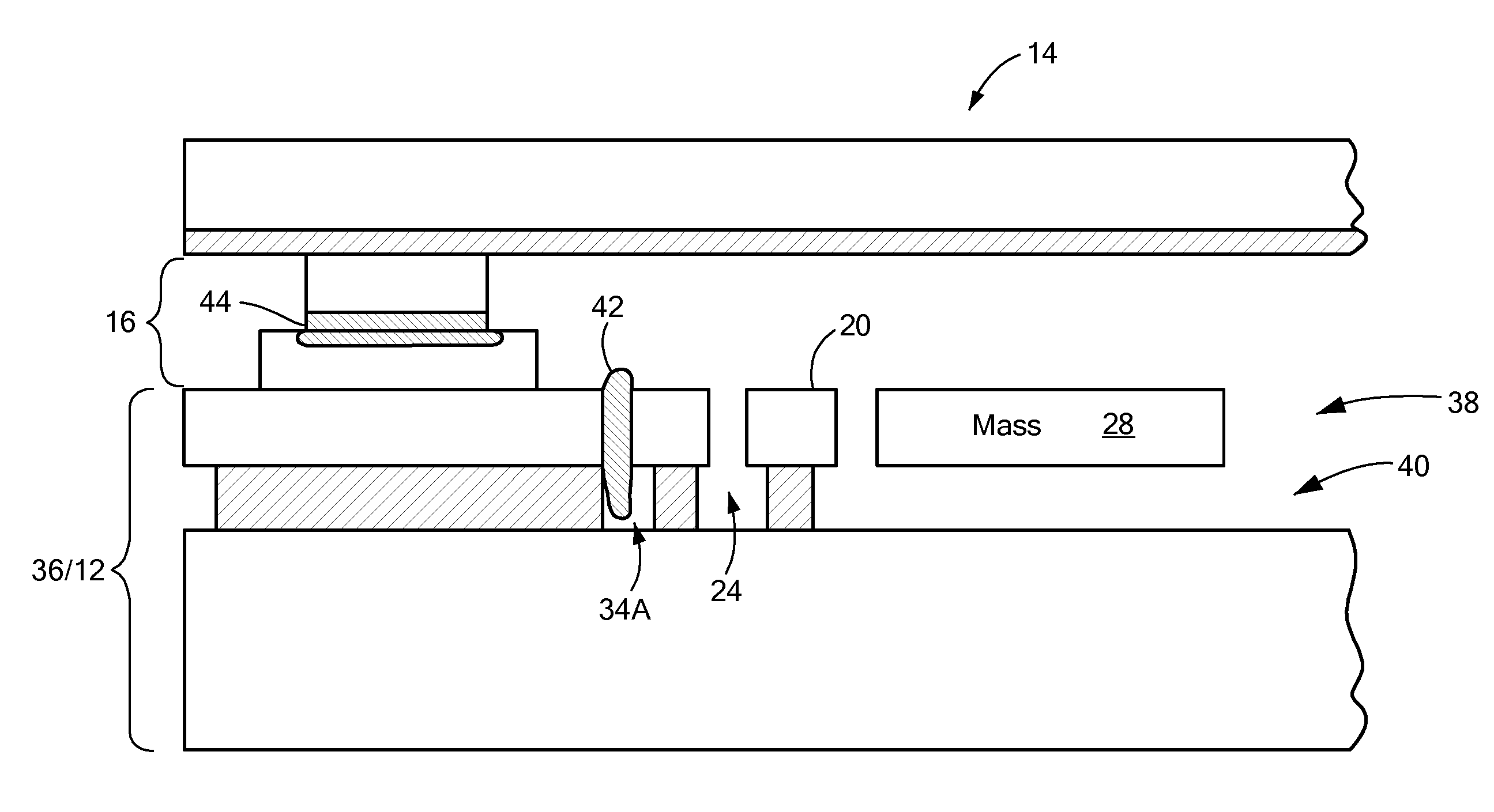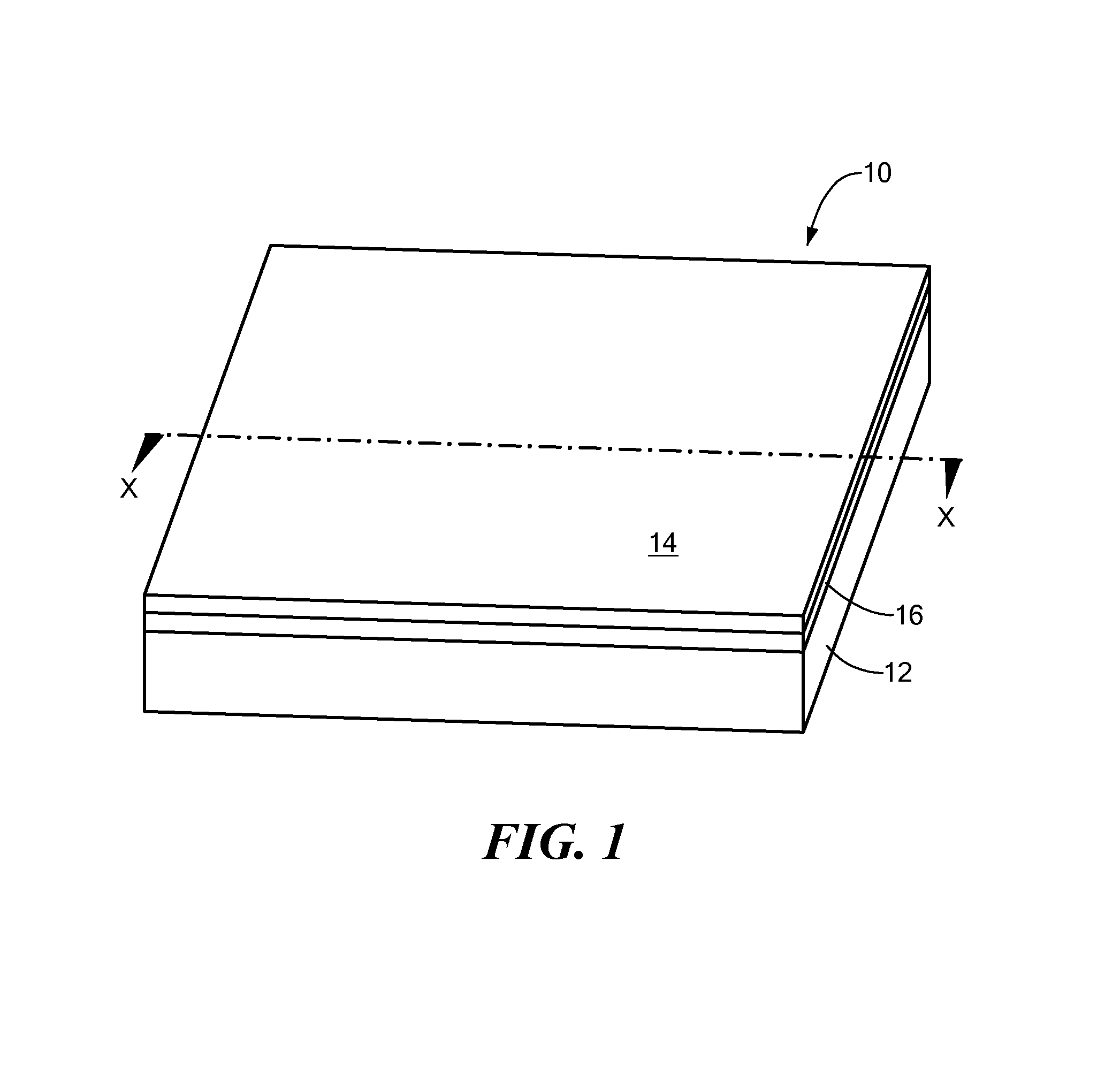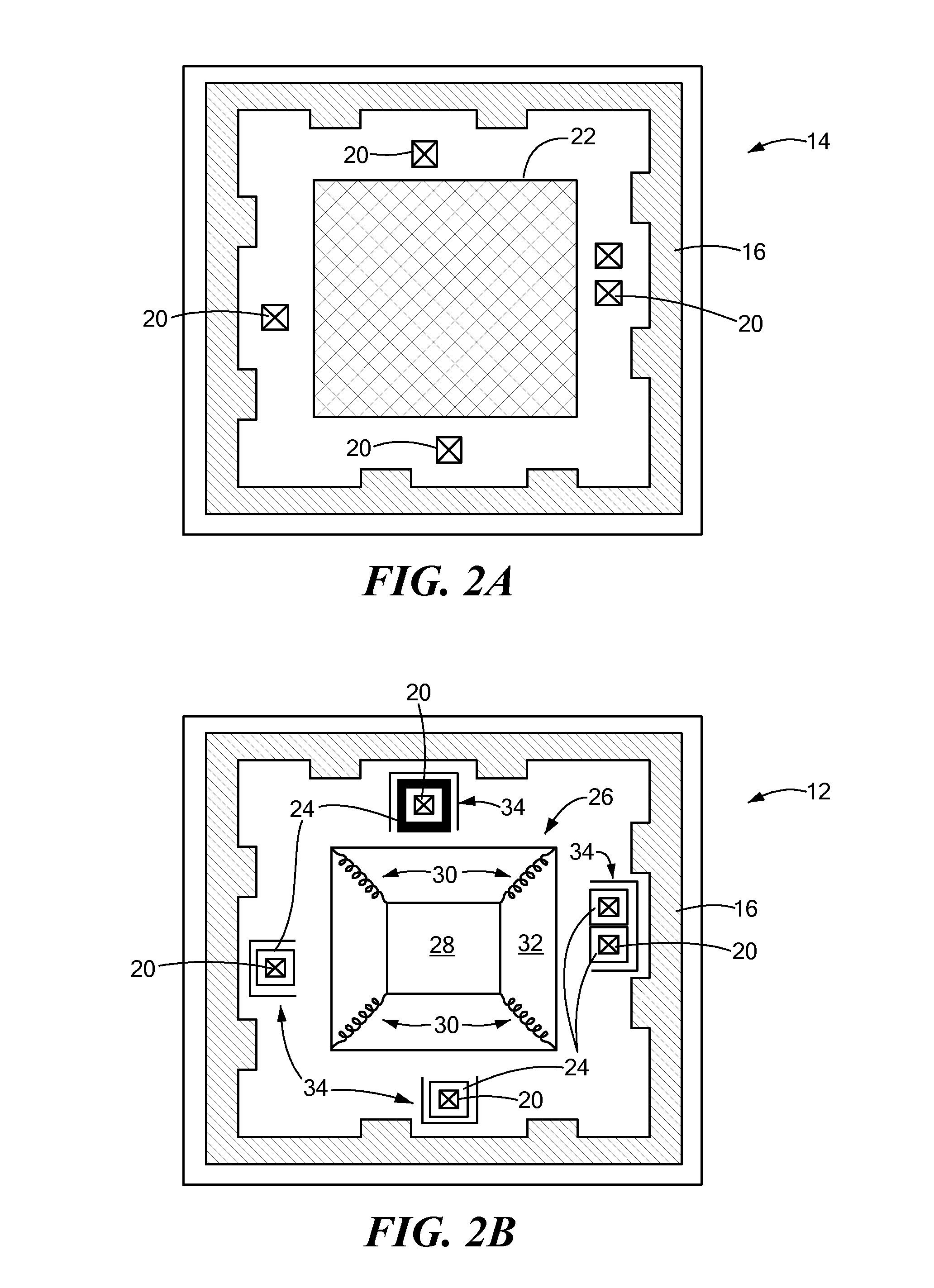Microchip with blocking apparatus and method of fabricating microchip
a technology of blocking apparatus and microchip, which is applied in the field of microchips, can solve the problems of compromising the integrity and performance of the ultimately produced microchip, short circuit, and significant yield loss
- Summary
- Abstract
- Description
- Claims
- Application Information
AI Technical Summary
Benefits of technology
Problems solved by technology
Method used
Image
Examples
Embodiment Construction
[0022]In illustrative embodiments, a microchip is configured to minimize yield loss during fabrication. To that end, the microchip has a blocking apparatus that, during fabrication, prevents liquid metal from electrically connecting its electrical interconnect (e.g., a bond pad) with a metal seal coupling its cap and base dies. For example, among other things, the blocking apparatus may include a blocking trench in the base wafer to capture overflowing liquid metal during the fabrication process. As a second example, the blocking apparatus also may include a protrusion, extending downwardly from the cap wafer, that uses surface tension to retain the liquid metal. Details of illustrative embodiments are discussed below.
[0023]FIG. 1 schematically shows a microchip 10 that may be configured in accordance with illustrative embodiments of the invention. Specifically, the microchip 10 may be considered to be a wafer level chip scale package (“WLCSP”) formed from two dies 12 and 14 bonded ...
PUM
 Login to View More
Login to View More Abstract
Description
Claims
Application Information
 Login to View More
Login to View More - R&D
- Intellectual Property
- Life Sciences
- Materials
- Tech Scout
- Unparalleled Data Quality
- Higher Quality Content
- 60% Fewer Hallucinations
Browse by: Latest US Patents, China's latest patents, Technical Efficacy Thesaurus, Application Domain, Technology Topic, Popular Technical Reports.
© 2025 PatSnap. All rights reserved.Legal|Privacy policy|Modern Slavery Act Transparency Statement|Sitemap|About US| Contact US: help@patsnap.com



